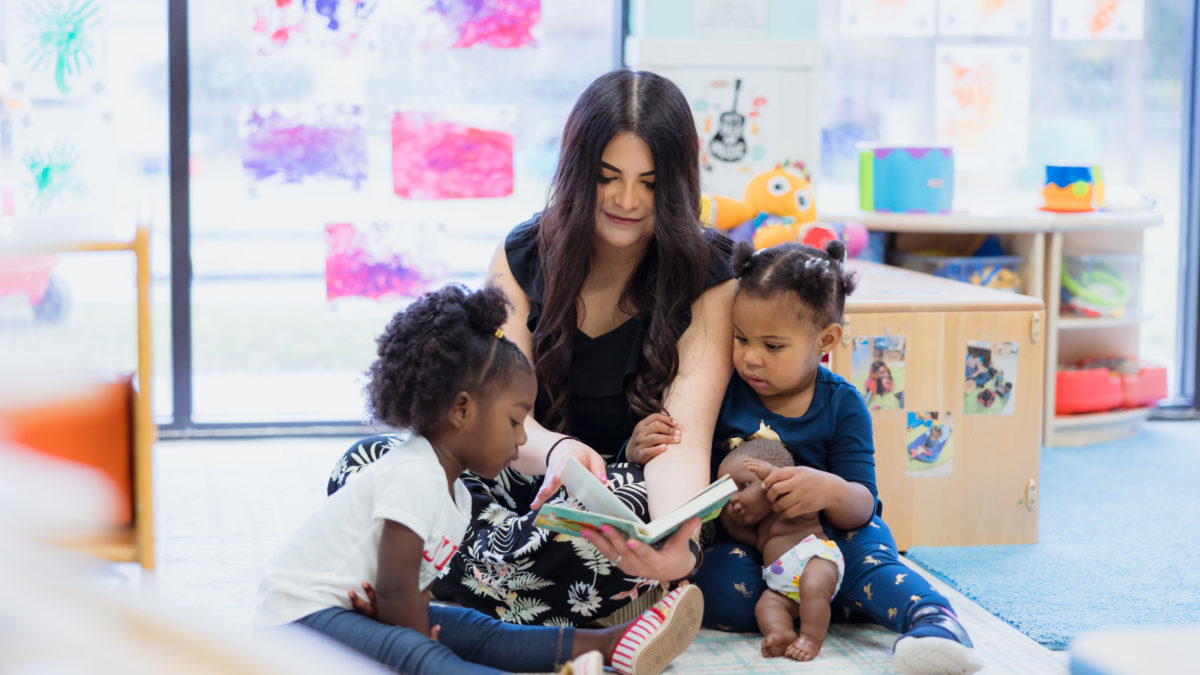How to Prepare Your Toddler for Preschool

Preschool applications are open—and if you’re like many families in Onslow County, your 3- or 4-year-old might be starting preschool in the fall. This is a huge milestone and one that brings up complicated emotions for both children and parents alike. If you’re excited for your child’s growth and all the new things they’ll experience but feel sad or worried about your child, remember: your emotions are normal.
As you spend the summer with your soon-to-be preschooler, you can take the time to make memories together—all while preparing your child for preschool in the coming months.
1. Practice self-help skills.
Before your child is officially in preschool, it can be helpful for them to practice many self-care and day-to-day skills. For example, consider what activities and skills your child will need to achieve each day in order to prepare themselves for school. For most children, this means putting their shoes on, practicing putting their coat or jacket on, zipping their backpack open and closed, and even sitting “criss-cross applesauce.”
2. Read with your child every day.
Reading to your child helps them learn sounds and words—improving early literacy skills—and sparks their imagination. To help prepare your child for days spent in the classroom learning, read books together this summer. Depending on your child’s aptitude for reading, you can even start sounding out words together and exploring phonetics in a lighthearted and fun way.
There are also a number of great books available about the very act of attending preschool.
Preschool, Here I Come, by DJ Steinberg is sometimes available in NC Pre-K classrooms. Pick out a few books related to preschool with your child to read this summer. As you read the books together, you can talk about the characters and their feelings—which also gives your child a great opportunity to discuss their own emotions.
3. Talk about your child’s emotions.
One of the most important things you can do before sending your child off to preschool is to talk about their emotions and feelings. Are they worried about attending preschool? Do they have questions about what their day spent at school will look like? Remind your child that it is perfectly normal to feel happy, sad, worried, anxious, or uncertain about school.
Encourage your child to share their feelings with you and you can offer ideas and strategies to help alleviate some of their concerns. If your child is worried about being homesick or missing their family, you can make a collage of family members or even a scrapbook for your child to have on hand. Or you can select a memento that reminds your child of their family or their loved ones.
4. Pay attention to nonverbal communication.
Although 3- and 4-year-olds can be very talkative, their brains are still not fully developed—and therefore, it can be difficult for them to fully express their feelings. As you move through this summer, keep a close eye on your child’s nonverbal behavior. Have they become more clingy? Have they become withdrawn and disconnected? Have they expressed angry or aggressive feelings?
It’s not uncommon for children to regress—or move backward—when faced with a big change. And although it can be frustrating, the most helpful thing you can do is support your child through this process. Don’t get irritated or angry. Instead, continue to be a safe, supportive, and nurturing space for your child to come to with questions, fears, and concerns.
5. Discuss your child’s new routine.
NC Pre-K offers home visits with teachers in advance of the beginning of the school year – make sure to take advantage of it if you can. This can be a great opportunity to calm your child’s nerves and give them a “trial run” before their official start.
Discuss with your child what a typical day in preschool looks like. Although every classroom routine is a bit different, you can share the common elements with your child such as circle time, snack time, recess, individual playtime, and potty breaks. Share details with your child about each part of the day and what they might expect. Then, ask for their thoughts and feelings about the activity and discuss any worries or questions that they may have.
Our Impact
One Place administers two preschool programs at no cost to eligible families in Onslow County: North Carolina Pre-Kindergarten for 4-year-olds and Three School for 3-year-olds.
Learn more and apply for preschool programs here.
